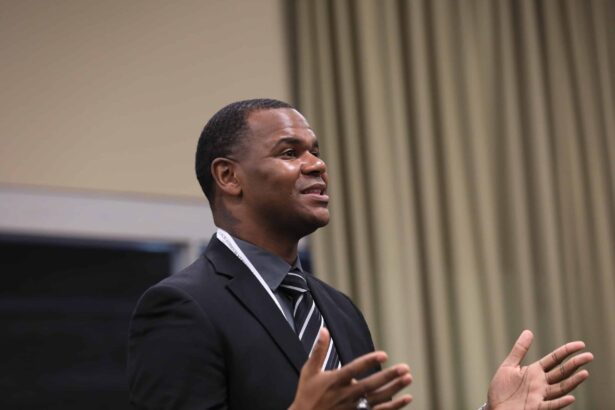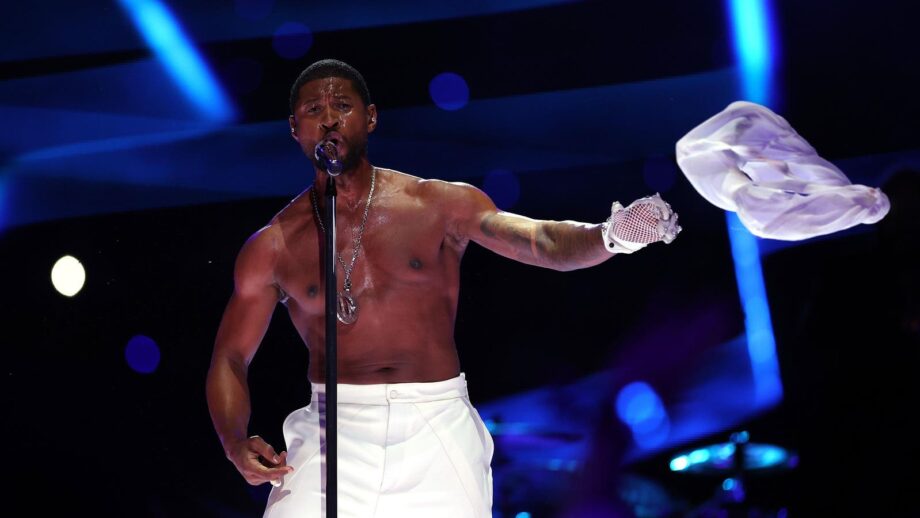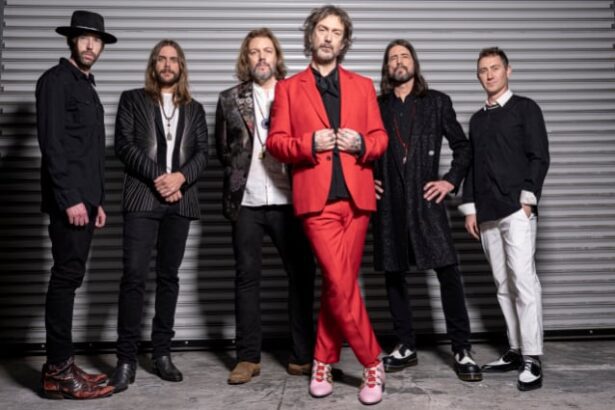Usher performs at Super Bowl and releases new album on eve of tour. (Photo by Jamie Squire/Getty … [+]
Super Bowl LVIII was in Las Vegas, but Usher used his platform there to transport millions of viewers to the city he has called home for more than three decades. “I took the world to the A,” the R&B megastar repeatedly chanted at the end of his electrifying Apple Music Halftime Show performance. Two years ago, the halftime show in Los Angeles was a tribute to West Coast hip-hop. This year’s took viewers from Sin City to the peach state’s entertainment epicenter. Usher did it his way: dripping in Black Southern culture.
“The Apple Music Administration advises the following performance may cause: Singing, dancing, sweating, gyrating, possible relationship issues,” appeared on the screen just before the show began. “Get ready to witness a performance 30 years in the making.” Usher then appeared in an outfit reminiscent of Elvis and other legendary Vegas stage performers, plus there were showgirls and Cirque du Soleil-style acrobatic performers. It was very Vegas, a cultural context that has become a deeply-familiar secondary homebase for Usher.
Just over two months ago, the 45-year-old singer and dancer tearfully concluded his ‘My Way’ Vegas Residency, which earned more than $100 million, Billboard reports. The two years he spent delivering 100 shows at Park MGM on the Vegas Strip were great for Usher’s brand. They also made him wealthier. The shows included dozens of Black performers, including Good Times Brass Band, an all-Black group of musicians from Atlanta. Thus, the residency diversified economic earning opportunities in the Vegas show economy, a space where Black creatives and entertainers have been long underrepresented.
Incontestably, the residency was huge for Usher’s career. Lovers and Friends, the hip-hop and R&B Vegas music festival he has headlined over the past three years, is also a really big deal for him and more than 70 other Black musicians who’ve performed there. In Usher’s first live television interview following the announcement that he’d be headlining Super Bowl LVIII, he told Gayle King and her CBS Mornings co-anchors, “this is a moment that I’ve waited my entire life for and I’m not coming to disappoint.” Usher didn’t disappoint. Perhaps more impressive is that he didn’t keep the moment all to himself – he authentically and unapologetically shared it with Atlanta. And he proudly shared Atlanta with the world.
Jermaine Dupri, Ludacris, and Lil Jon joined Usher on stage during the 2024 Super Bowl halftime … [+]
When Atlanta hip-hop royalty Jermaine Dupri, Ludacris, and Lil Jon showed up, the halftime show became noticeably more crunk (Atlanta-speak for electrifying, turnt up). There were Black performers on roller skates – Usher skated and sang alongside them. Because Atlanta is home to some of the world’s most famous strip clubs, it made sense that pole dancers were part of the halftime show.
Kappa Alpha Psi Fraternity is a significant, predominantly Black organization across the globe, especially in Atlanta. Two smooth, shimmying Kappa Brothers twirling our signature red-and-white striped canes joined Usher on stage during his performance of ‘Love in this Club.’ It felt like an excitingly familiar cultural moment from ATL’s legendary annual Greek Picnic.
Four of Atlanta’s greatest cultural assets are its Historically Black Colleges and Universities: Spelman, Morehouse, Clark Atlanta, and Morris Brown. Two of them have marching bands; neither performed at this year’s Super Bowl. Instead, Usher picked Jackson State University’s Sonic Boom of the South, arguably the nation’s best. Even though they weren’t from an Atlanta HBCU, the Mississippi-based elite marching band elevated Usher’s southern culture fest. Most of those musicians were Black.
Just hours before his Super Bowl showcase, Usher released his ninth studio album, ‘Coming Home.’ He took millions of Super Bowl watchers home with him to Atlanta from Vegas. The unpaid halftime performance will uplift his already stratospheric legacy and bring many more ticket purchasers out to his recently-announced ‘Past Present Future’ North America tour.




